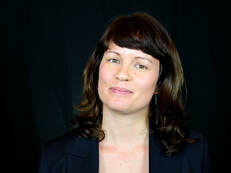It has been a privilege to be a part of JSPG's growth - the journal began as a collection of insightful science policy submissions by early career scientists, and over ten years it has become an impactful journal that is building a community of highly engaged international science policy scholars and advocates.
In the previous post, we spoke with authors who published in the first issue of JSPG.
In this second post, we also talked with our editorial leadership who have had a long tenure with the journal to hear their reflections and ideas for the future.
Past editorial leadership: how did JSPG help advance their careers?
Gary Kerr and Tess Doezema both led the editorial process for a number of years, and discussed how the journal helped them grow professionally:
Gary:“Leading the editorial board at JSPG has helped me develop not only as an editor and leader, but has opened up a huge range of professional opportunities for me. JSPG has helped me understand in detail the policy-making process, and as a result I’ve been able to advise the Scottish Government on COVID-19 policy, and more recently been appointed to a panel of experts on science communication at the European Parliament. Without the direct science policy experience developed at JSPG, these doors would not have opened for me.”
Tess:“My role as JSPG Editor-in-Chief gave me the opportunity to develop and enact my own editorial vision, allowing me to gain invaluable insights into the writing and publishing processes and experience managing a diverse and geographically dispersed team of editors and authors. My time with the journal continues to inform how I approach student mentorship and science communication across communities and disciplines. Beyond these more practical skills, what I learned as part of the JSPG team continues to productively shape the knowledge and experience I bring to conceptualizing the complex interplay between knowledge and policy, between technologies and the worlds their creators imagine to exist and seek to intervene in.”
More recent editorial leadership: how does JSPG help the next generation?
More recent leadership by Christian Ross took the journal to the next level, alongside our expansion in the number of special issues led by Maddy Jennewein. They reflect on the value of the journal for the next generation:
Christian: “The next-generation of science and technology policy researchers and practitioners have an invaluable resource in what JSPG has accomplished. As a journal, JSPG provides an exceptional platform to engage with dynamic and complex topics in science and technology policy that are incredibly consequential. More than that, JSPG gives early-career researchers opportunities and experiences that distinctively equip them for academic and professional careers in which science and technology are increasingly and rightly recognized as being inseparable from the social, cultural, and political realities of the worlds we create and live in. For myself, leading the editorial team at JSPG has enabled me to better understand and navigate policymaking contexts and enhanced my own professional work in ways that would not have been possible without the unique position of JSPG at the intersection of science, technology, and democratic governance.”
Maddy: “JSPG provides a unique resource for developing scientist-researchers. As the journal has grown we’ve been able to expand not only the editorial support we’ve provided but also the outreach and resources to the broader community. Particularly as the special issues side of JSPG has expanded over the past 4 years, we’ve greatly increased the number of submissions that we published, engaging more authors and more importantly widening the pools of authors that we support to a more global and diverse place. Partnering with organizations such as the National Science Policy Network and the UN Major Group for Children has brought us much greater prominence in the space, and attracted a broad pool of authors and editors to join our effort. Working with JSPG over the past several years has been a wonderful experience and I’ve truly enjoyed working closely with Tess and Christian to help grow the journal and solidify new practices and procedures to enable a more successful journal.”
Editorial reflections on the future of the journal
Looking ahead, Rosie Dutt recently became our newest Editor-in-Chief. She shares her hopes for the future:
Rosie: “As the journal has continued to grow from strength to strength, I endeavour to keep the momentum going by fortifying the journal's editorial board through refining our review process to ensure maximum efficiency and the publication of high quality articles that continue to elevate early career work and voices in science policy.”
Brand new Assistant-Editor-in-Chief Ben Wolfson and Junior Assistant-Editor-in-Chief for Special Editions Andy Sanchez, also shared their perspectives:
Ben: “As a long time associate editor it was a privilege to support so many early-career researchers as they’ve entered the policy arena and a pleasure to read their diverse work. It’s been both incredibly interesting and an inspiration for my own science policy journey. JSPG is an incredibly valuable resource and I’m excited to support the journal's future growth as Assistant Editor-in-Chief."
Andy: "JSPG fulfills a key role in the science policy landscape, by providing early career researchers an outlet for policy issues they're passionate about. Through the editorial process, our contributors hone their skills in policy, communication, and critical thinking. Afterwards, they can use the published product to advance their advocacy--spreading awareness about their projects with an accessible, actionable document. I was thrilled when I first published in JSPG, and now, in my new role, I'm honored to support the journal's mission and help our authors realize their goals."
In closing, we are grateful to our authors for their interest in the journal and to the editors for supporting the journal during these 10 years. We’ve also been very fortunate to be surrounded by many wonderful peers and mentors in our editorial board and editorial leadership teams, and guided by an illustrious group of thought leaders in science policy through our governing board and advisory board. We thank them all for their input and dedication in making the journal what it is today, and we are also grateful to our partners who have supported us over the years and helped move our common missions forward. We look forward to taking the journal to new heights in the next decade, based on this solid foundation laid before us.
Post written and compiled by Adriana Bankston.
Comments are closed.
|
- Home
- About
-
Volumes
- Volume 24 Issue 01
- Sigma Xi and Rita Allen Foundation - Civic Science for Transformative Policy Solutions to Societal Challenges
- Volume 23 Issue 01
- APS Policy and Governance on Science, Technology and Global Security
- IAI Development Policy and Global Change Science to Achieve the Vision of Sustainable Americas
- Volume 22 Issue 01
- GHFUTURES2030 Strengthening Youth-centered Policy and Governance of Digital Transformations in Health.
- UNESCO AND MGCY OPEN SCIENCE POLICIES AS AN ACCELERATOR FOR ACHIEVING THE SUSTAINABLE DEVELOPMENT GOALS
- Volume 21 Issue 01 >
- JSPG and UCL STEAPP Special Topics: Innovations in Science Diplomacy >
- Sigma XI-JSPG Special Issue: Re-envisioning STEM Education and Workforce Development for the 21st Century
- Volume 20 Issue 01
- JSPG Volume 19 Issue 01 (10 Years of Publishing)
- Special Issue: 2021 NSPN-JSPG Policy Memo Competition
- Special Issue: Shaping the Future of Science Policy
- JSPG-UK SIN Special Issue: Climate Change Solutions
- Volume 18 Issue 01
- Special Issue: 2020 NSPN-JSPG Policy Memo Competition
- Volume 17 Issue 01 (Supported by AAAS STPF)
- JSPG-UN MGCY Special Issue: Impacts of Emerging Technologies
- Volume 16 Issue 01
- Volume 15 (Supported by CSPC)
- Special Issue: 2019 NSPN-JSPG Policy Memo Competition
- Volume 14
- Volume 13
- Volume 12
- Volume 11
- Volume 10
- Volume 9
- Volume 8
- Volume 7
- Volume 6
- JSPG-UCS Special Issue: Healthy Food Policy
- Volume 5
- Volume 4
- Special Issue: Hot Topics 2013
- Volume 3
- Volume 2
- Volume 1
- Submit to JSPG
- Announcements
- Events
- Training
- Media Mentions
- Policy in action
- Podcast








